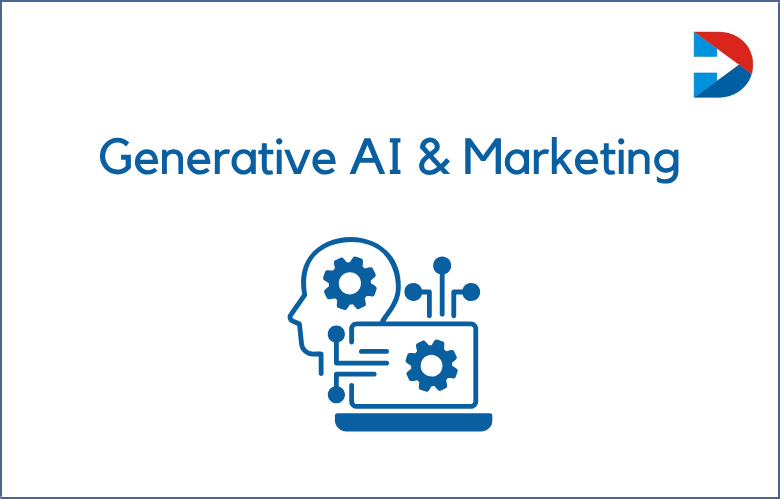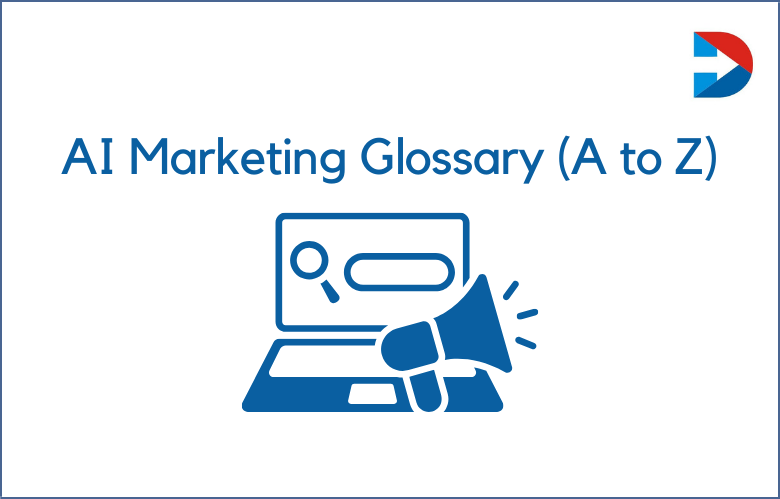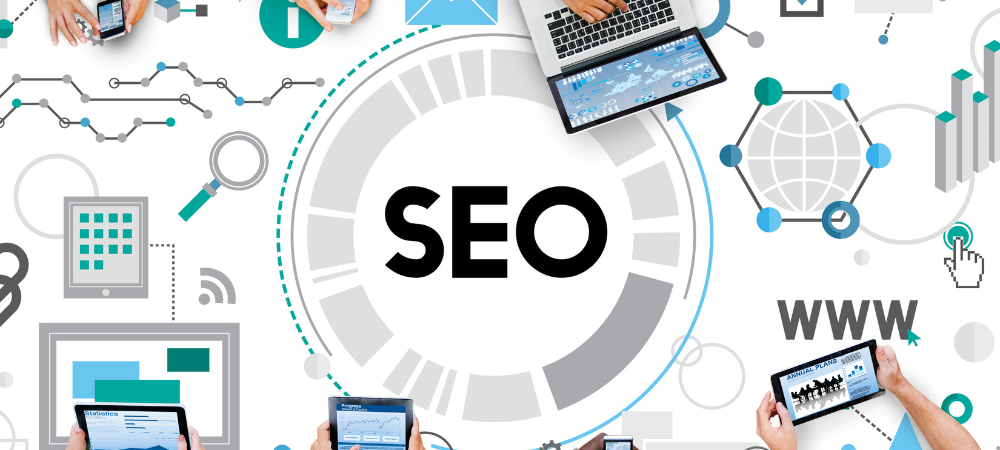
Artificial Intelligence (AI) is not a new concept in digital marketing. It has revolutionized how businesses approach their marketing strategies for years, allowing for more intelligent, more effective campaigns.
AI is crucial in various marketing strategies, from predictive analytics to personalized content and messaging. So, how does AI impact marketing strategies? Let’s dive in.
Artificial Intelligence (AI) has been making waves in the marketing industry for quite some time now.
The application of AI in marketing strategies has revolutionized how businesses target their audience, personalize communication, and analyze consumer behavior.
AI-powered marketing tools have become an invaluable asset for businesses, enabling them to make data-driven decisions, identify trends, and predict consumer behavior precisely, enhancing customer engagement.
However, this also ushers in an era of greater responsibility as businesses need to appreciate the ethical considerations of AI-powered marketing.
What is AI Marketing?
AI Marketing refers to implementing Artificial Intelligence (AI) technologies and applications within the marketing field.
It enables marketers to leverage intelligent algorithms and machine learning techniques to analyze relevant data and insights to optimize their marketing campaigns for increased efficiency and effectiveness.
AI in marketing involves various applications and technologies, such as natural language processing (NLP), predictive analytics, and machine learning algorithms.
These tools can help businesses develop highly personalized marketing campaigns targeting individual customers.
How does AI impact Marketing Strategies?
Artificial Intelligence (AI) has significantly impacted marketing strategies by enabling personalized and targeted approaches to reach customers at the right time and message.
AI technology can analyze vast amounts of data from various sources, including social media, purchase history, and browsing behavior, to identify patterns and insights that help businesses understand customers’ preferences and behavior.
One of the most significant impacts of AI on marketing is the ability to create personalized recommendations and product suggestions.
By analyzing customer data and preferences, AI algorithms can suggest products or services that customers will likely be interested in, increasing the probability of conversion.
For example, Amazon’s recommendation engine uses machine learning algorithms to suggest products based on a customer’s browsing and purchase history.
What are the Benefits of using AI in Marketing?
Personalized Ads
One of the primary benefits of using AI in marketing is the ability to create personalized ads for customers.
AI-powered algorithms can analyze consumer data and demographics to create highly targeted ads tailored to individual customer preferences. This helps to ensure that customers only see advertisements that are relevant to them, increasing the chances of engagement and conversion.
Automated Campaigns
AI can also be used to automate marketing campaigns, which can save businesses time and money.
AI-powered tools can automatically send emails or other messages at predetermined times, allowing businesses to stay in touch with their customers without manually managing campaigns.
AI-based tools can track customer behavior and adjust real-time campaigns based on how customers interact.
Improved Customer Service
AI can also improve customer service by providing automated responses and support when customers have questions or need help.
AI-powered chatbots can answer common customer queries quickly and accurately, freeing up staff members from answering repetitive questions and allowing them to focus on more complex tasks.
Optimized Content Creation
AI-powered tools can also be used to optimize content creation for marketing purposes.
By analyzing customer data, AI algorithms can identify topics likely to resonate with a particular audience, enabling marketers to create content that is more likely to engage readers and generate conversions.
Improved Targeting Capabilities
AI algorithms can also improve targeting capabilities by analyzing customer data such as demographics, interests, behaviors, and past purchases to identify potential new audiences for a business’s products or services.
This allows businesses to target their marketing efforts more effectively by contacting those most likely interested in what they offer.
Predictive Analytics
Predictive analytics is another key benefit of using AI in marketing, as it enables businesses to anticipate future trends and behaviors to predict outcomes before they happen.
Companies can gain valuable insights into their target audience by leveraging predictive analytics tools powered by AI algorithms. Hence, they know how to adjust their strategies to maximize campaign results.
Cost Savings
Using AI for marketing can also help businesses save money by reducing costs associated with manual labor, such as hiring additional staff members, or outsourcing tasks, such as data analysis or content creation.
With AI-powered tools doing the heavy lifting, businesses will save money and free up resources to focus on other areas of their operations where they may need more help or attention.
Increased Efficiency
Using AI in marketing helps increase efficiency by automating many tasks requiring manual effort.
This frees up staff members from having to spend time on mundane tasks, enabling them to focus on activities that require more strategic thinking, such as creating new campaigns or developing strategies for reaching new audiences.
Can AI Improve Customer Targeting in Marketing Campaigns?
Artificial Intelligence (AI) has the potential to revolutionize customer targeting in marketing campaigns by providing businesses with the ability to gain deeper insights into their customers.
Through advanced algorithms and machine learning techniques, businesses can use AI to identify and segment customers based on their preferences, behaviors, and demographics.
This enables companies to create tailored marketing campaigns that speak directly to their target audience, resulting in higher conversion rates and increased revenue.
AI also can analyze vast amounts of customer data from multiple sources, including social media, purchase history, and website interactions.
By aggregating and analyzing this data, AI can identify patterns and predict future customer behavior. This allows businesses to anticipate consumer needs and tailor their marketing campaigns accordingly, resulting in more effective engagement.
How does AI Enhance Personalization in Marketing
Artificial Intelligence (AI) has revolutionized modern marketing by providing businesses with advanced tools and techniques to cater to consumers’ needs and preferences.
AI has enabled marketers to develop a more personalized and targeted approach to marketing.
AI-powered personalization in marketing leverages machine learning algorithms to create a comprehensive understanding of consumer behavior, analyzing data points from different touchpoints to develop unique insights and customer segmentation models.
AI also uses natural language processing (NLP) to interpret consumer interactions and sentiment, enabling businesses to comprehend and respond to customer needs in real time.
What are Some Real-World Examples of AI in Marketing
Artificial intelligence (AI) has become a game-changing technology in marketing. Its ability to process vast amounts of data efficiently has transformed customer analysis and engagement, allowing marketers to make data-driven decisions and provide personalized customer experiences. Here are some real-world examples of AI in marketing:
Chatbots
AI-powered virtual assistants engage with customers on social media and websites. They provide quick and customized responses to frequently asked questions, reducing customer service response time and increasing engagement.
For example, H&M’s chatbot on Kik allows customers to personalize their shopping experience and receive recommendations based on their preferences.
Personalized recommendations
AI algorithms can analyze customer data and provide highly targeted product recommendations. Amazon’s recommendation engine, for instance, generates more than 35% of its sales by suggesting products based on customers’ search history and past purchases.
Content creation
AI-powered tools can analyze trends, customer preferences, and competitor data to generate content that resonates with the target audience. For instance, The Washington Post uses an AI-powered platform called Heliograf to write short reports on local events and sports.
Predictive analytics
AI algorithms can analyze customer data to predict future behavior, helping marketers create more effective campaigns.
For example, Sephora employs predictive analytics to personalize its marketing campaigns, providing targeted discounts and recommendations to customers based on their past purchases.
Image and voice recognition
AI-powered image and voice recognition technologies can enhance customer experience by enabling customers to search for products and services using photos and voice commands.
For instance, Pinterest Lens allows users to take a picture of an item and find similar products on Pinterest.
At the same time, Google Assistant lets users perform various activities through voice commands, including ordering food, booking appointments, and paying bills.
In conclusion, AI has already revolutionized the marketing industry and is expected to continue transforming it.
By leveraging AI-powered technologies, marketers can provide personalized experiences to customers, predict their behavior accurately, and increase engagement and sales.
Does AI Affect SEO in Marketing Efforts?
Artificial Intelligence (AI) has significantly impacted digital marketing in recent years. AI has become increasingly widespread as marketers strive to create more targeted and personalized campaigns.
One area where AI has a particularly significant impact is search engine optimization (SEO).
Search engines use complex algorithms to determine the relevance and ranking of websites in search results. AI is now used to understand these algorithms better and optimize websites for higher rankings.
Companies can use AI tools for keyword research, content optimization, and link building. AI software can also help identify areas of a website that need improvement or optimization for better search rankings.
How can AI-Driven Insights Optimize Content Creation?
Artificial Intelligence (AI) has revolutionized the way we do business. In the world of content creation, AI-driven insights have recently emerged as a valuable tool for companies looking to optimize their content creation and distribution strategies.
Utilizing AI-powered algorithms, businesses can gain valuable insights that enable them to create more targeted and engaging content that resonates with their target audience.
These insights achieved through AI can strengthen the company’s content marketing strategy, increase engagement, and drive profitability.
AI can help businesses analyze customer data and gain insights into their needs, preferences, and behaviors.
Data from customer interactions with web content and searches can be analyzed to understand their interests, pain points, and the type of content they prefer to consume.
By utilizing this information, businesses can create content that resonates with their audience on a deeper level and tailor the content to each customer.
AI Marketing Applications
AI Marketing Applications have revolutionized the marketing world by enabling brands to create more personalized and effective marketing strategies.
Artificial Intelligence has enabled businesses to collect and analyze vast amounts of data, allowing for more precise targeting and segmentation of audiences.
One of the most significant advantages of using AI in marketing is its ability to optimize advertising campaigns. By using AI algorithms, marketers can predict which types of content will perform best for a specific target audience.
This results in more cost-effective advertising strategies, as marketers can save their resources on campaigns that are unlikely to deliver results.
AI Marketing Tools
AI marketing tools use artificial intelligence algorithms and techniques to assist marketers in their decision-making processes. These tools can analyze consumer behavior patterns and recommend personalized marketing campaigns.
By leveraging machine learning and predictive analytics, marketers can gain valuable insights into customer trends, preferences, and behaviors that can be used to improve their marketing strategies.
AI marketing tools offer a range of benefits, including increased efficiency, enhanced targeting capabilities, and improved ROI. For example, predictive analytics can help marketers identify high-value target segments for their products and services.
At the same time, recommendation engines can provide personalized product recommendations to customers based on their past buying behavior. Furthermore, chatbots and virtual assistants can improve customer engagement by providing customized support and assistance.
AI-powered Content Optimization
AI-powered content optimization is a cutting-edge technology revolutionizing the world of digital marketing.
By incorporating the power of artificial intelligence into the content creation process, businesses can produce more detailed, factually rich, and semantically robust content that engages their target audience and helps them rank higher in search engine results pages.
AI-powered content optimization uses sophisticated algorithms and natural language processing (NLP) to analyze various data sources, including social media, web analytics, and customer feedback.
By leveraging this data, businesses can better understand their audience’s preferences, needs, interests, and search queries and produce more compelling content that caters to these factors.
AI-driven Customer Segmentation
AI-driven customer segmentation is a revolutionary approach to understanding the needs and preferences of customers to serve their unique requirements better.
This approach harnesses the power of artificial intelligence algorithms to analyze and interpret vast amounts of customer data to identify meaningful patterns that can be utilized for segmentation.
Businesses can tailor their marketing strategies and offerings by profoundly understanding customers’ behaviors, interests, and demographics to meet their needs best.
Such segmentation can be used in multiple industries, from retail to healthcare, to enable businesses to build better customer relationships, increase sales, and improve overall customer satisfaction.
AI Marketing Trends
Artificial Intelligence (AI) has significantly impacted the marketing landscape, and businesses are continually developing AI-powered solutions for a more personalized marketing experience.
With AI, marketers can leverage sophisticated algorithms to analyze vast amounts of data, generate insights, and develop predictive models to inform campaigns.
One critical trend is the use of chatbots in marketing. Chatbots use natural language processing and machine learning to understand customer inquiries and provide personalized responses.
This saves time and enhances customer engagement by simulating human conversation. Brands like Sephora, H&M, and Pizza Hut have integrated chatbots into their marketing strategies to reduce wait times and provide personalized recommendations to customers.
Impact of AI on Digital Advertising
Artificial Intelligence, or AI, has significantly impacted digital advertising, transforming how marketers reach their target audiences and create more personalized experiences for them.
AI in digital advertising has improved targeting precision, enabling marketers to identify and engage with their audience more meaningfully and effectively.
AI-powered algorithms can analyze user behavior and customer data to create detailed profiles, providing insights into user preferences, interests, and behaviors.
This information helps advertisers precisely target their audience with the right messaging at the right time, through the right channels, and on the proper devices.
AI also enables the creation of hyper-targeted ad campaigns, delivering relevant content to users based on their needs, interests, and behavior.
AI-generated Content Quality
When it comes to AI-generated content, ensuring quality is of utmost importance. While AI algorithms can create content quickly and efficiently, they sometimes need more in-depth detail and nuance.
Adding more factual information and semantic richness to the text is essential to ensure that AI-generated content is of top-notch quality.
One approach is to incorporate more research and data into the text to achieve this. This can involve extensive research on the discussed topic and using credible sources to support any claims or arguments.
Including statistics, figures, and examples can help reinforce the key points and make the content more informative and engaging.
AI-powered Email Marketing Effectiveness
Artificial Intelligence (AI) has transformed many industries and marketing is no exception. With the rise of AI-powered email marketing tools, businesses can enjoy higher effectiveness and efficiency in email campaigns.
One of the key benefits of AI in email marketing is its ability to personalize content and targeting. AI-powered tools can analyze customer data such as behavior patterns, interests, and demographics to create targeted and personalized email campaigns.
This improves the relevance of the email content and increases the likelihood of the email being opened and engaged with.
AI Marketing Strategies for Startups
In today’s digitized world, AI has revolutionized the marketing landscape. Startups can now leverage AI technology to gain a competitive advantage by enhancing their marketing strategies.
In fact, according to recent surveys, over 80% of businesses have started implementing AI into their marketing plans to improve customer engagement, automate menial tasks, and boost overall revenue.
With AI, startups have access to many tools and techniques, such as predictive analytics, chatbots, natural language processing, and image recognition, which allow them to tailor their marketing strategies to meet customers’ needs and preferences.
AI-powered chatbots can deliver personalized customer support, facilitate e-commerce transactions, and enhance overall customer experience. Image recognition technology can help identify customer demographics, track brand mentions, and identify purchasing trends.
AI Marketing vs. Traditional Marketing
The marketing world has progressed from traditional methods to increasingly sophisticated Artificial Intelligence (AI) marketing techniques.
Traditional marketing is a broad term that refers to the long-standing methods used to market a product or service, such as television and radio ads, print advertisements, billboards, and flyers.
These methods may have served their purpose in the past, but the rise of technology has revolutionized how businesses seek to engage with customers.
AI marketing, on the other hand, refers to the utilization of technology, specifically AI, in conducting marketing campaigns. This method employs algorithm-driven technology to analyze data, enabling businesses to make informed decisions about their target market and customer behavior.
The use of AI in marketing allows for more personalized and accurate targeting of consumers, with the ability to customize content, messaging, and even pricing strategies for each customer.
AI-powered Customer Journey Mapping
In today’s digitally driven world, businesses increasingly leverage the power of artificial intelligence (AI) to enhance their customer journey management strategies.
AI-powered customer journey mapping is a revolutionary technique that enables businesses to gain a deep understanding of their customers, streamline their interactions, and, ultimately, enhance their overall experience.
AI-powered customer journey mapping enables businesses to identify and map out customer touchpoints, including social media, websites, email, and offline interactions.
This technique is based on machine learning algorithms that analyze customer data to identify trends, patterns, and preferences to gain insight into customer behavior.
The data collected is used to predict the future behavior of customers and develop effective strategies to acquire, retain, and expand customer relationships.
Leveraging AI for Data-driven Marketing
In today’s digital landscape, businesses looking to stay ahead of the competition must tap into the power of artificial intelligence (AI) to drive their marketing efforts.
AI can analyze large amounts of data in real-time, extracting valuable insights to inform and enhance marketing strategies.
This data-driven marketing approach enables businesses to understand their customers deeper, tailor their messaging to resonate with their audience, and ultimately drive more sales.
AI-powered tools and platforms can process and analyze vast customer data from various sources, including social media, browsing behavior, purchase history, and more.
By leveraging this data, businesses can build highly targeted marketing campaigns that speak directly to their customer’s needs and preferences.
This leads to more effective marketing efforts, generates a more positive customer experience, and improves brand loyalty.
AI-driven Content Recommendation Engines
AI-driven content recommendation engines are intelligent algorithms and systems that use artificial intelligence to recommend relevant and personalized content to users based on their current interests and preferences.
They analyze user behavior, such as search history, clickstream data, and browsing patterns, to understand the user’s needs and interests. They then use this information to suggest content most likely to engage and interest them.
These recommendation engines are widely used in many industries, such as e-commerce, media and entertainment, and social media websites. They help companies improve user engagement, customer loyalty, and revenue by delivering more relevant and personalized content to their users.
Conclusion
AI has changed the face of digital marketing, revolutionizing how marketers approach their campaigns. By giving businesses a deeper understanding of consumer behavior, AI has enabled marketing strategies that are more personalized, efficient, and effective.
Whether it’s predictive analytics, chatbots, content creation, or ad optimization, AI is playing a critical role in shaping the future of marketing as we know it.
Marketers who adopt AI-driven strategies will have a distinct advantage over their competitors, as AI becomes the critical differentiator in providing a seamless and personalized customer experience.
In conclusion, AI-powered marketing has become an essential tool for businesses, driving marketing strategy through its unique capabilities.
AI enables businesses to understand their target audience better, personalize communication, predict consumer behavior, optimize content creation and delivery, and gain accurate data insights.
However, as AI continues to evolve in marketing, businesses must also understand the ethical considerations that come with it as privacy concerns and the conscientious use of data become more prevalent.
With these considerations, AI-powered marketing is a technological advancement and a significant driver behind a new era of personalized marketing that values the customer experience.



